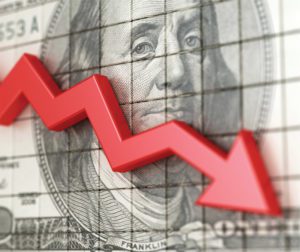

Some individuals have a difficult time finding ways to manage stress. The intriguing anatomy and process of our brains help us to better understand the production of fear, anxiety, worry and the decision to take flight or to fight. There are neurotransmitters throughout the entire body that send signals to the brain, alerting you instantaneously of real or perceived danger. Anxiety is made up of both psychological and physical symptoms. The psychological part creates the nervousness, fear and worry, while the physical aspect produces sweating, rapid heart palpitations, a rise in blood pressure, nausea and shortness of breath.
Stress and Anxiety both play a role in pre and post-heart attacks. For example, stress can lead to high blood pressure, arterial damage and a weakened immune system, which can exacerbate a myocardial infarction. For those individuals that have suffered a heart attack or those that have undergone heart procedures, depression can linger for weeks following their episode. If the condition is not dealt with, it can lead to chronic depression, which will hinder healing and may because additional health issues to arise.
Men and Women can be treated most successfully if heart conditions are caught early. However, there are many options to treat advanced heart disease as well which include medications and procedures. Additionally, finding ways to manage stress, keeping weight down with a healthy diet, keeping the heart muscle strong and oxygen-rich blood flowing through cardiovascular exercise are helpful, along with medications like ACE inhibitors, alpha-beta blockers, and cholesterol-lipid lowering drugs. In certain situations, stents, angioplasty, bypass grafts, and other procedures may be necessary.
Along with these measures, there are specific diagnostic screenings that your cardiologist can provide to decipher how healthy your heart and arteries are; these include blood tests, stress tests, EKG’s, echocardiograms, holter monitors, vascular ultrasounds, and scans.
If you believe you are having a heart attack or stroke, call 911! If you’re having initial symptoms that come and go, contact your cardiologist immediately.
Additionally, you can try and alleviate your stress naturally:
#1 RELAX—take a bath, take a walk or simply shut yourself in a separate room for 10 minutes to do deep breathing exercises to reduce anxiety, can help significantly.
#2 EXERCISE—Most people can benefit from taking a brisk 30-minute walk. Exercise increases circulation, reduces stress, it also improves nutrient and oxygen rich blood flow, and helps you build strength.
#3 SLEEP—When a person gets the recommended, uninterrupted seven to nine hours of sleep, cytokines are produced; these help to fight inflammation, infection and reduce anxiety. Blue light from the TV, laptop or clocks can disrupt the circadian rhythm and natural sleep cycles, leading to increased activity in the brain, less relaxation and exacerbates stress and anxiety.
At Cardiac Care Group, they take your symptoms seriously and are prepared to see you and to discuss your conditions. They specialize in providing a wide range of services that focus on the prevention, prompt diagnosis and state-of-the-art treatment of cardiovascular disease.
Dr. Joseph Freedman MD, MBA
Dr. Freedman brings many years of experience as a cutting edge cardiologist specializing in the prevention, diagnosis, and treatment of all cardiac disease. He trained at the prestigious Cleveland Clinic, continually ranked #1 in Cardiovascular Care, where he focused on cardiac imaging. He achieved five board certifications in Internal Medicine, Cardiology, Comprehensive Adult ECHO, Nuclear Cardiology and Cardiac CT. During his tenure as the lead noninvasive cardiologist at Florida Medical Center in Ft. Lauderdale, he helped lead the hospital to achieve Level 5 chest pain certification, the highest designation of cardiac excellence.
He has spoken on national health care radio programs and has appeared on local news, highlighting the latest in cardiovascular care. Dr. Freedman prides himself on being an advocate for the patient. Every patient is unique, and he works carefully with leading local and national experts to make sure patients receive the best specialty procedural care possible for that particular case. Dr. Freedman has done research in cardiac MRI studies of the heart, in nuclear scanning, and has participated in the research trials of several leading cholesterol-lowering drugs. Dr. Freedman also has extensive experience in pulmonary hypertension and ran a large clinic in Broward County for these specific and often undiagnosed patients. Dr. Freedman speaks Spanish as well.
Cardiac Care Group
3208 Chiquita Blvd S., Suite 110
Cape Coral, FL 33914
(239) 574-8463
www.flccg.com
This information is for educational purposes only and is not intended to replace the advice of your doctor or health care provider. We encourage you to discuss with your doctor any questions or concerns you may have.
 Southwest Florida's Health and Wellness Magazine Health and Wellness Articles
Southwest Florida's Health and Wellness Magazine Health and Wellness Articles

